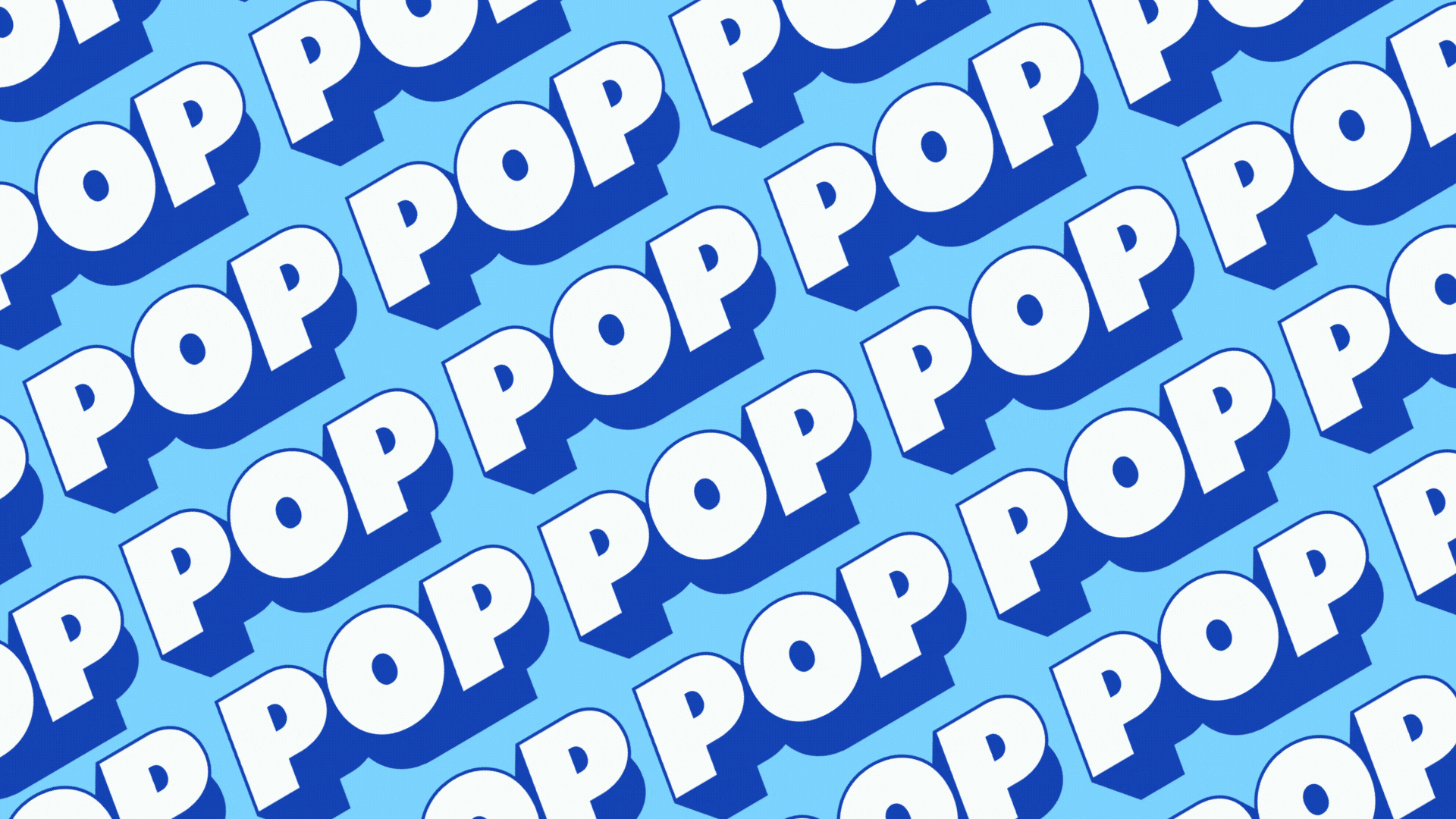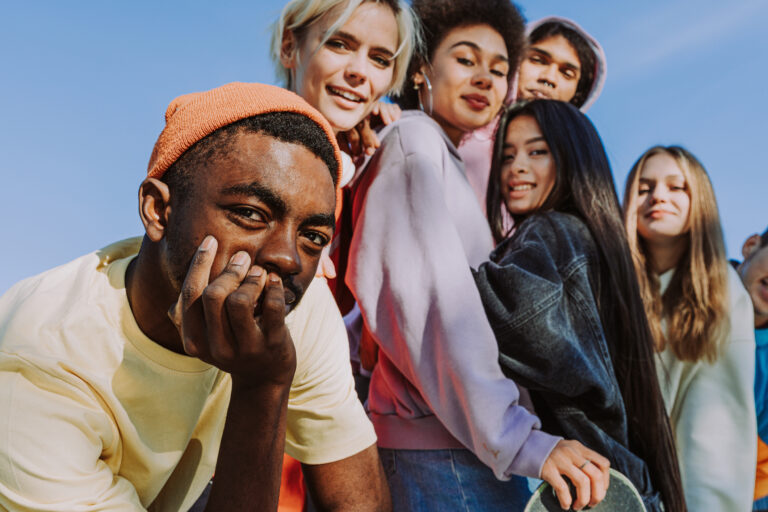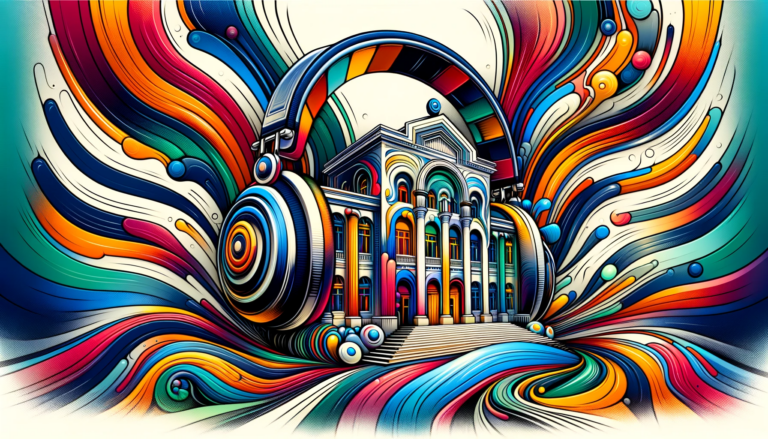
Last week, I attended the OBE Summit for Branded Entertainment in Milan, Italy. Along with Mirko Lagonegro and Davide Panza, founders of the Italian podcast company, Digital MDE, I talked about the unique power of audio for brands.The timing was great because just this week, Mirko and Davide launched Italy’s first ever branded podcast, “Sbaglio strada e cambio vita” (rough translation: “I’m wrong and I’m changing my life”). They have decided to launch the branded podcast industry in Italy in a very smart, unique, and bold way. I sat down to talk with them about their approach and came home with some exciting new podcasting ideas.
Steve: So original Italian language podcasts aren’t really a thing yet. And you are about to launch Italy’s first ever branded podcast, “Sbaglio strada e cambio vita,” with the insurance company, Verti, and the H-Farm agency.
Mirko: That’s right. This will be the first branded podcast made it Italy. (But because we’re talking to Pacific Content, we will say that it is the first Original Podcast with a Brand!). This is the second high-quality Italian language podcast — there has been already a well-produced podcast, but it was a journalistic podcast. Not only will this be the first branded podcast, but it will also be the first comedy podcast in Italy.
Steve: Why isn’t there a bigger podcasting industry in Italy yet?
Mirko: People in Italy love the radio. They’re used to listening to the radio, so even if 10% of the population today listens to radio on a connected device, it would be surprising. It’s quite strange. As a result, there are no offers of podcasts or digital audio content that are made with high quality. And so we saw an opportunity to deliver that high-quality audio content and fill that missing gap in Italy. We are attempting to create a market from scratch and invent the rules. It feels like a surprisingly big opportunity. It’s like going to a party and everyone is fighting over the food at the buffet and we are the only ones that realize that there is also an open bar.
It’s like going to a party and everyone is fighting over the food at the buffet and we are the only ones that realize that there is also an open bar.
Davide: The problem on the business side has been that when we bring podcasts and digital brands to agencies, they are quite interested, but because the radio industry is quite profitable, there is no motivation for radio companies to get into podcasts. There is also no precedent for a podcast for brands and agencies to see. There are barriers to being first. You have to risk money and you don’t know what the numbers will be. There are no case studies or benchmarks. So the first step is to make a case study. Someone has to jump into this and see what happens. And we have a great opportunity with the brand new Verti podcast.
Steve: How did you get Verti to say “yes” to their own podcast when no one else has done it before?
Davide: The people at Verti have a very open mindset. They love the podcast platform and they want to do something that they believe in. They have a great manager that understands that they spend millions in advertising, so why not spend just a little bit of that on trying something new and being a leader in a new medium? Their aim is to bring something new to the market, something pioneering. They are pioneers and podcasting is a pioneering marketing activity.
Mirko: If this goes correctly and more brands begin to understand and embrace this space, we think that in six months to a year, things will change a lot.
Steve: One of the most remarkable achievements is that Italy’s first branded podcast is fiction. And it’s not just fiction — it’s comedy. That’s a big, bold move. I believe that the first North American brand to do a fiction podcast was GE, with their hit series, The Message. But I’m not aware of any brand since that has done fiction and I’m not aware of any brand EVER that has done a fictional comedy podcast. How did you get them to do such a brave format? And why did you pitch such a brave concept for your first podcast ever with a brand?
Mirko: The biggest part of our strategy for brands is fiction. As hungry readers of the Pacific Content blog, Tom Webster’s research and blogs, and James Cridland’s blog, we spend a lot of time learning about the podcast industry. There are two relevant ideas that have stuck in my mind. The first is just a sentence: “Go big or go home!” You need to set the bar high — up to the ceiling, or to the roof, and work at the highest level possible.
Second, I have had the pleasure of talking with Tom Webster many times. He wrote a great blog post that suggests looking at the movie box office results and the top shows on TV, and then looking at the top podcasts. Podcasts are missing out on what is popular in movies and TV.
I’m happy that one in three Americans listen to podcasts regularly, but I worry about the other two out of three that don’t. Maybe the podcast offer appears too sophisticated, or too snobby? I think our role is to entertain people and so we thought that providing people with the content that appeals to them most is the best strategy.



Steve: You also have a really unusual strategy for helping brands decide what type of podcast they want to make with you. It’s almost like a menu that offers a whole bunch of podcast ideas in the form of trailers, and potential clients can pick the one that resonates with them. Can you explain how the pilot page strategy works?
Davide: In the U.S. podcast industry, they have the Podcast Up Fronts events. They present the new shows to the investors and advertisers and we thought, why don’t we do the same? And then we realized that we didn’t even have to produce full shows — we can produce something like trailers for potential shows that act as our own Podcast Up Front, but shown to clients in a digital way instead of a live event.
So we give them a login and password to access our catalog of trailers and they can listen to all of them. And if they like one of the trailers, they can call us and say “I want this!” Or this is something that I’d like you to adapt for my brand. With Verti, this is exactly what happened. They listened to our trailer, asked us if we could match their values and their mission, and we did it.
Steve: I heard the trailer for one of your other fictional trailers. It sounds like a Hollywood movie trailer… which oddly does not sound like most North American podcast trailers. I love it! Tell me a little bit about your strategy for how you’ve made these.
Mirko: It is strange to be telling someone from North America how we made a trailer! The American culture has been our teacher for the last forty years about how to create trailers and we are really just applying a copycat approach.
And overall, we are using a lot of ideas from Hollywood. We want to make our shows with the highest quality possible, so we are working with professional screenwriters — people that write for TV and movies. And we work with famous actors in Italy.
I have one minute of a listener’s time to blow their minds and a great trailer is a way to do it. I worked in radio for forty years and we all know that we have very little time to convince people that we are offering them a good story to listen to. So it’s not rocket science.
Again… go big, or go home!

Steve: Let’s talk about your acting choices. All the big Hollywood movies are dubbed by Italian actors, and Italian audiences know the voices of these voiceover actors. You’ve cast your podcasts with these famous voiceover artists. And this sounds like it’s the greatest creative experience they’ve ever had. Tell me a little bit about your strategy and then why the actors like podcasting so much.
Mirko: Unfortunately, all American and foreign movies are dubbed into Italian. We are not used to hearing the original voices of the American actors — we know the voices of very, very great Italian actors. So for example, there’s a story that we produced which is based on mafia bosses. And the voice we decided to use is the actor that has been the dubber of James Gandolfini and Robert DeNiro for the last thirty years in Italy. For our Twilight-like saga, Broken Wings, we hired the Italian voices of Robert Pattinson and Kristen Stewart. We’ve also recorded pilots with the voice actors that dub for Zac Efron and Bradley Cooper.
And all those actors were totally amazed when we recorded the pilots with them, because that’s when they first realized that there wasn’t anything to dub. They told me, “So you mean that for the first time I can act like it’s me with my voice as an actor, not dubbing those famous superstars?” So podcasts are very exciting for them as performers.
And using these famous, recognizable voices has been another way to remove friction for new listeners.
Steve: It sounds like it’s a very smart strategy to use a lot of very familiar things. And whether it’s the trailer, or the actors, or the type of storytelling, there are many familiar things that happen to be in a new medium. It seems like an easier decision for people to try podcasting for the first time.
So you’ve just launched the first branded podcast ever in Italy. What’s your prediction for the rest of 2019 for Italian podcasting?
Davide: My prediction, and my hope, is that some brands, start embracing this opportunity to produce original content. So for us, 2019 is a starting point in order to show the business people, the brands, the publishers, and the agencies that podcasts can work for them as part of their marketing. So it’s the beginning and if things go as we hope and Verti builds a solid audience… we hope that in October or November, more brands will be adding a budget line for podcasting in their 2020 budget and that 2020 will be a very good year.
Steve: Finally, what does it mean for Italians that only the second high-quality original podcast in Italian will be coming from a brand? What does this say about how brands will be perceived as media companies?
Davide: So the shift to this new world means that day-by-day, brands will understand that they are already media. That if they make a great podcast, they can reach and build a large audience. So I do believe that every industry can start doing this. And in some locations where traditional media is not leading the way with digital audio and podcasts, the growth of the podcasting industry will more or less exclusively rely on brands. It’s only the brands who have the economic resources and the tools to make “go big or go home” shows and promote them to audiences.
You can listen to the podcast here or here… but remember, it’s all in Italian! 🇮🇹
Sign up for the Pacific Content Newsletter: audio strategy, analysis, and insight in your inbox. Once a week.



